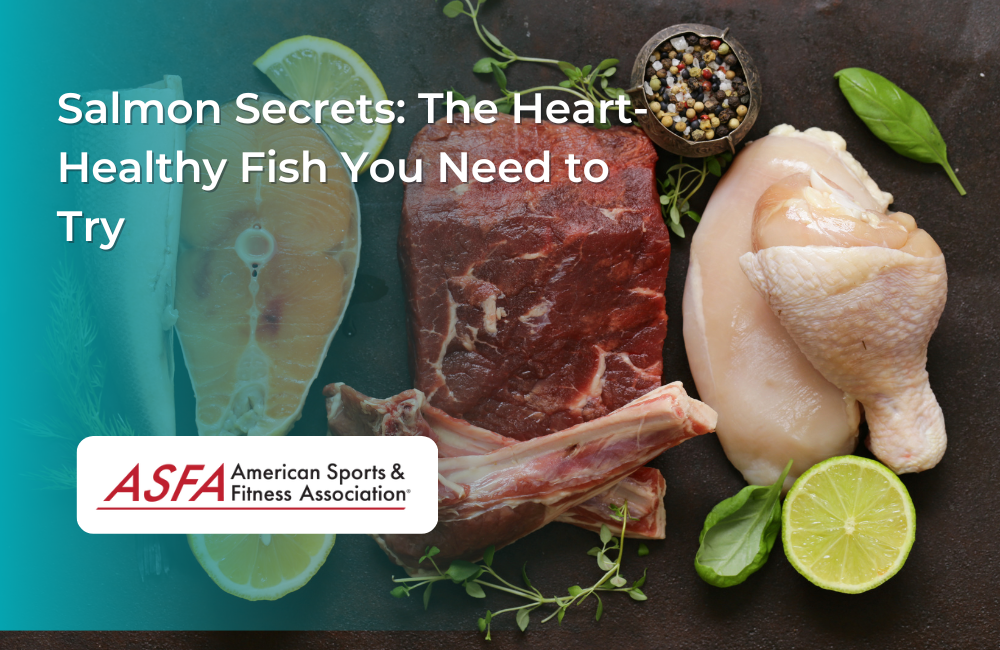Looking for an easy way to improve your diet? Salmon is the answer. This heart-healthy fish is full of nutrients, and it's rich in healthy fats and Omega-3s. Here are five reasons why you should be eating salmon:
It's a lean source of protein.
Salmon is low in fat, but it still has monounsaturated and polyunsaturated fats. These types of fats can lower LDL (bad) cholesterol and the risk of heart disease.
To get the most benefits from salmon, limit your intake of saturated fats to no more than 5 percent of your daily calories. Eating fish like salmon at least twice a week for their omega-3 fatty acids (also called long-chain n-3 PUFAs). Omega-3s can help prevent heart disease and stroke by reducing inflammation as well as lowering blood pressure and triglycerides (fats found in blood). They may also reduce arthritis pain, depression symptoms, and asthma severity in children who wheeze frequently due to allergies or respiratory infections
Salmon contains healthy fats.
- Omega-3 fatty acids are healthy fats that promote heart health and fight inflammation.
- Salmon is a lean source of protein, which keeps you feeling full.
- B vitamins help our bodies convert food into energy, so they're important to our overall health.
- Salmon has less mercury than other fish (like tuna and swordfish), making it one of the safest options for seafood lovers who want to avoid toxins like mercury when eating fish regularly.*
It's high in Omega-3s.
As an Omega-3 fatty acid, EPA and DHA have been shown to help reduce blood pressure, lower triglycerides (a type of fat in your blood), reduce inflammation, and improve mood. Eating fish at least twice per week for optimum heart health. Salmon is rich in DHA and other B vitamins that are important for brain function; it also provides selenium--an antioxidant mineral that may help prevent cancer--and magnesium which aids relaxation.
If you don't like salmon or if you'd rather not consume animal products at all, try eating another kind of fish instead: mackerel or sardines are both excellent sources of healthy omega-3s too!
Salmon is rich in B vitamins.
Salmon is rich in B vitamins, which help your body process carbohydrates, protein, and fat. The B vitamins are water-soluble, so they're not stored in the body. Instead, they're excreted through urine or sweat when we need to get rid of them. Fortunately for us vegans out there (or anyone who likes to eat salmon), this means that it's easy to get enough of these important nutrients every day without having to worry about overloading them!
B vitamins can be found in salmon as well as eggs, meat, and whole grains like brown rice or quinoa. They're also abundant in other foods like avocado oil (which you'll find on our list below). The eight B vitamins include thiamin (B1), riboflavin (B2), niacin (B3), pantothenic acid/pantothenate sodium salt pyridoxine hydrochloride biotin folic acid cyanocobalamin
The fish is low in mercury.
- The fish is low in mercury.
- Sources of mercury include coal-burning power plants and other industrial activities, as well as runoff from land and volcanic eruptions.
- Mercury accumulates at higher levels in larger fish, so it's best to avoid eating large quantities of high-mercury species like tuna (you should also limit yourself to 12 ounces [340 grams] per week).
- Smaller fish tend to have lower levels of mercury because they eat smaller organisms that don't accumulate much of the heavy metal themselves--and if you're pregnant or planning on becoming pregnant soon, it's best not to eat any high-mercury seafood at all! There are calculators online that can help determine what level is safe for each individual person based on factors like age and weight; these tools can be found by searching "fish calculator" plus your state or country name
This article is about how great salmon is for your health and why you should eat it if you haven't already
If you haven't tried salmon yet, it's time to start! Salmon is a great source of protein and omega-3 fatty acids. It also contains many other nutrients like B vitamins, selenium, and vitamin D that are good for your heart health.
The best part? You don't need to eat much of it to reap these benefits--you only need two servings per week (or one serving if you're pregnant). In fact, eating just two servings of fish per week has been linked with lower rates of heart disease in women over 50 years old who have high blood pressure or diabetes!
Salmon is also a lean fish; so if you're watching your weight or trying not to gain too much weight during pregnancy (or after), this might be something worth considering as well since its low-fat content means fewer calories than other types of meat such as beef or chicken breast which tend have higher levels especially when cooked without any oil added into the pan first before adding food items inside afterward."
Conclusion
We hope this article has convinced you that salmon is a great fish to eat. It's high in protein and Omega-3s, which are both important for heart health. The only thing we would like to add is that if you want to get even more benefits from eating salmon, then make sure it's wild-caught rather than farm-raised!





